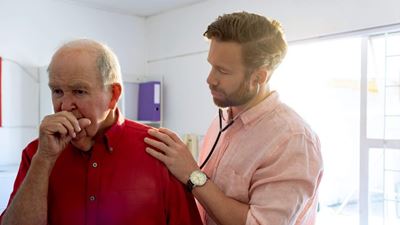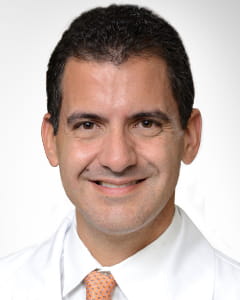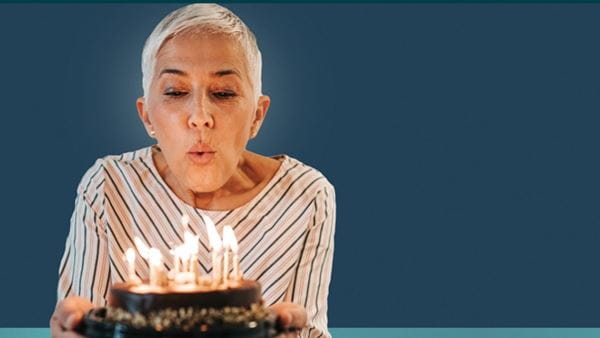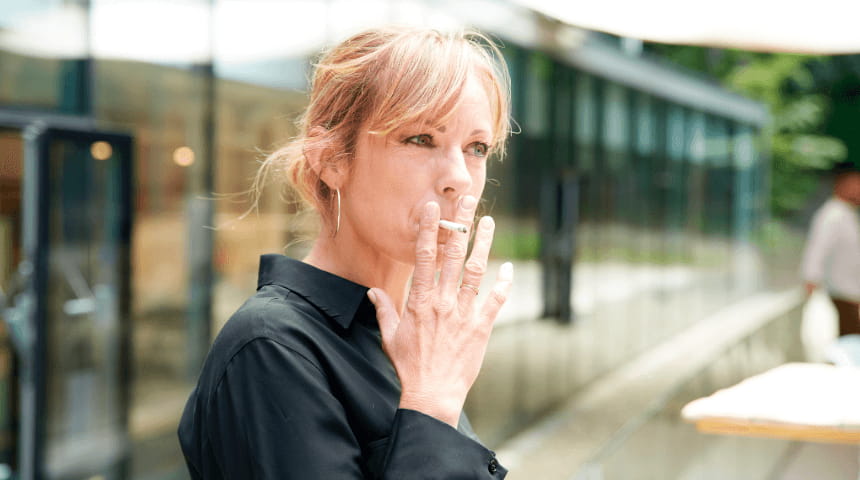Here’s an alarming statistic: While 80 percent of the cases we see in our clinic stem from those who have a history of smoking cigarettes, it might surprise a lot of people to know that the other 20 percent have never smoked cigarettes or used any form of tobacco in their lives. That amounts to about 70,000 cases of the 225,000 diagnosed with lung cancer in 2018.
So can you contract lung cancer as a nonsmoker? Unfortunately, the answer is yes. There are several reasons why, whether it’s being around those who do smoke regularly or even gene mutations.
Cancers in those who have never smoked tend to be non-small cell lung cancer (like adenocarcinoma). They grow slower, can occur in younger patients and often have a genetic mutation in the tumor driving its growth.
The Culprits
According to The American Cancer Society, five of the top lung cancer risks to be wary of are:
-
Radon gas. This risk alone accounts for an average of 21,000 deaths a year — and it’s estimated that 2,900 of those deaths are linked to nonsmokers. This inert gas can be present in the soil with natural uranium deposits. When a home has been built on soil contaminated with radon, it can negatively affect those who live there. Radon gas is odorless and can’t be seen, so it’s hard to know it’s there unless your home is tested for it. In Florida, one in five homes tested has elevated radon levels, according to the Florida Department of Health.
-
Secondhand smoke. Approximately 7,000 people die every year due to secondhand smoke. Laws about smoking in public places have helped lessen this danger over time, though it’s still one to be aware of.
-
Cancer-causing agents. These carcinogens include asbestos and diesel smoke, and usually affect those spending long hours around them at work. When possible, limit prolonged exposure to any known carcinogens.
-
Air pollution. Contaminants in the air (particularly near coal mines and congested cities) can contribute to a higher lung cancer risk. This is generally more of a danger in countries other than the United States.
-
Gene mutations. Random genetic mutations can occur in our lungs, causing some cells to become cancerous. Lung cancer cells differ between smokers and nonsmokers. Research is still being developed, but targeted drugs may be used to help combat growth.
Other risks to remain aware of include family history, age and even what you do for a living. If lung cancer runs in your family, consider getting screened.
When in Doubt, Get Checked Out
Getting checked early for lung cancer is recommended. Those who discover they are in the early stages of contracting lung cancer often do so by accident — they’re getting a chest x-ray or CT scan for another reason entirely. When symptoms do occur, they usually include coughing (with or without blood), shortness of breath, fatigue and weight loss.
another reason entirely. When symptoms do occur, they usually include coughing (with or without blood), shortness of breath, fatigue and weight loss.
Lung cancer can sometimes be confused with pneumonia. If a spot shows up on the lungs that that does not go away on its own, it is important to get it checked out.
If you’re between 55 and 77 years old, have smoked a pack or more of cigarettes a day for 30 years or more, are a current smoker or quit less than 15 years ago, you owe it to yourself to get screened for lung cancer every year.
Lung screening saves lives. Don’t feel guilty if something is found and don’t be frightened of other future procedures. By detecting the disease early, it can be cured with proper treatment.
Don’t Skimp on Your Veggies
There are ways to fight back. In general, you can avoid lung cancer risks by staying away from tobacco (including vaping), limiting any exposure to cancer-causing agents and eating a healthy diet filled with fruits and vegetables.
Be proactive and seek medical advice if you have persistent respiratory symptoms. While it’s true that not all lung cancers can be prevented, remaining aware of possible signs and taking precautions are always recommended.
Choose to Blow Out More Candles
When you get a lung cancer screening, you help ensure you can keep blowing out your birthday candles with a healthy breath of air.
Learn More






